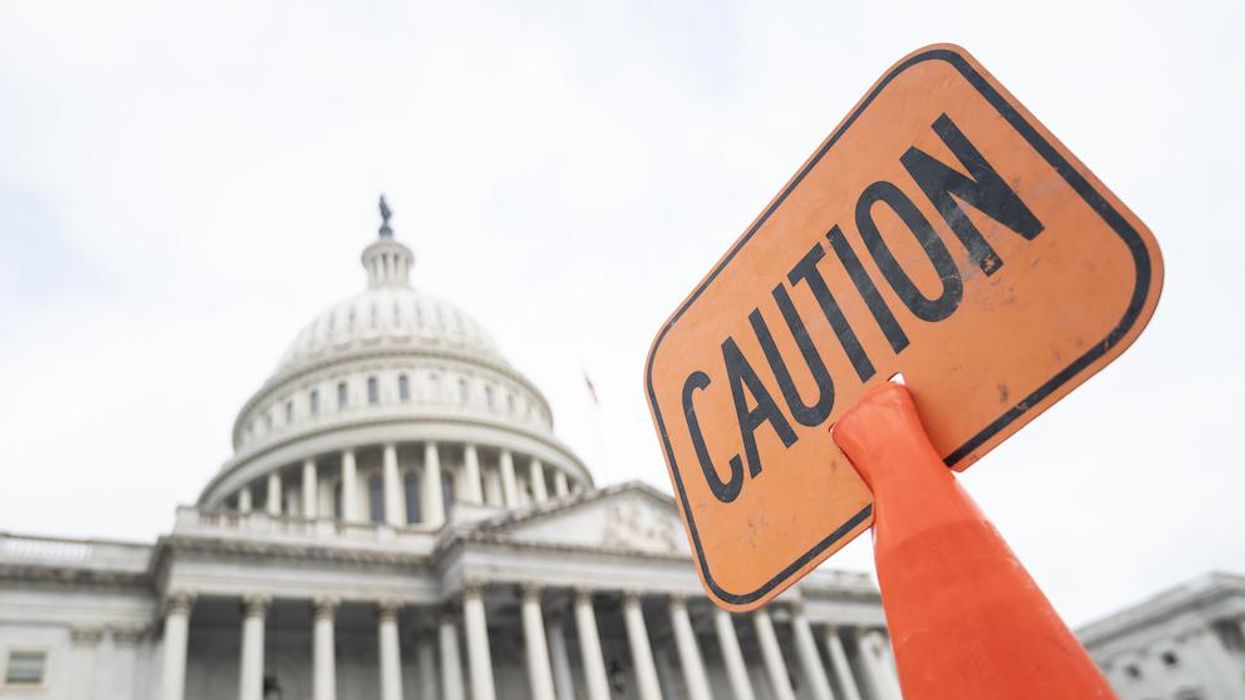
Photo by Bill Clark/CQ-Roll Call, Inc via Getty Images

The U.S. Senate passed a $1.2 trillion infrastructure bill Tuesday afternoon that was sold to the American people as an investment in the nation's transit, broadband, and water systems.
But the massive spending plan, which received the support of 19 Republican senators despite the fact that the Congressional Budget Office estimated it would add hundreds of billions of dollars to the federal budget deficit, has a few items in it that conservatives should be aware of, according to the Christian Post.
More than just dealing with roads, bridges, waterways, and communication lines, the bill also contains some "unexpected" items that many Americans likely didn't know had been inserted, the outlet said. Here are three provisions the Post noted:
Missouri Republican Sen. Josh Hawley took to Twitter to reveal that the measure includes a "gender identity" passage.
"Now gender identity is infrastructure," Hawley tweeted with a picture of a page of the bill. "Can't wait to see what else is in this bill."
From the Christian Post:
[The bill] includes a declaration that “the term 'gender identity' has the meaning given the term in section 249(c) of title 18, United States Code." The mention of gender identity is included in Title III of Division F of the bill, which deals with broadband distribution and outlines a legislative initiative called the Digital Equity Act incorporated into the infrastructure package.
The Digital Equity Act also includes a nondiscrimination provision proclaiming that “no individual in the United States may, on the basis of actual or perceived race, color, religion, national origin, sex, gender identity, sexual orientation, age, or disability, be excluded from participation in, be denied the benefits of, or be subjected to discrimination under any program or activity that is funded in whole or in part with funds made available to carry out this title."
The conservative Family Research Council sent out a letter declaring its opposition to the bill, Hawley tweeted.
FRC warned that the Digital Equity Act "elevates sexual orientation and gender identity (SOGI) to a specifically protected class status."
"[D]oing so," the letter said, "is unnecessary, has numerous tangential harmful consequences, and is coercive."
The goal of the Equity Act, FRC said, is "the total overhaul of our federal civil rights framework to mandate special privileges base on SOGI classes."
The so-called infrastructure bill also includes a provision that will allow states that have not taken the step of legalizing recreational pot to get "samples and strains of marijuana" for research purposes.
The bill will create a "national clearinghouse to collect and distribute samples and strains of marijuana for scientific research that includes marijuana and products containing marijuana that are lawfully available to patients or consumers in a state on a retail basis," the Christian Post said, quoting the bill's language.
There were rumors floating around that the infrastructure bill would mandate that all new cars be equipped with alcohol monitoring systems. People on social media were concerned that the government was going to require carmakers to install monitoring technology in their cars.
And it would all be done in the name of "vehicle safety," the Post noted.
Turns out the rumors were true, WUSA-TV reported in a fact-check report.
"The bill mandates that the National Highway Traffic Safety Administration must create rules mandating that alcohol monitoring systems be required for all new cars," the station explained.
According to WUSA, the bill orders the secretary of transportation to use the National Highway Traffic Safety Administration to "issue a final rule prescribing a Federal motor vehicle safety standard ... that requires passenger motor vehicles manufactured after the effective date of that standard to be equipped with advanced drunk and impaired driving prevention technology."
The technology, WUSA said, needs to: